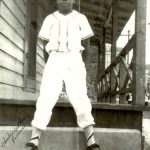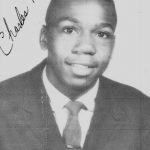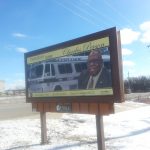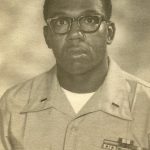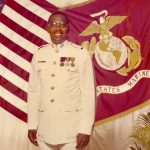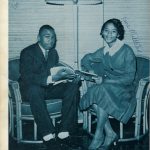Charles Person was born November 13, 1943 in Atlanta, where he grew up in the Buttermilk Bottom neighbourhood, not too far from Martin Luther King’s birth home. Charles grew up in the era of Jim Crow, confronting the racial restrictions that were still in place even after the Second World War. With his parents’ blessing and support, Charles became an activist, joining the sit-ins as the civil rights movement began to blossom in the South, and spurred on by his convictions Charles became one of the original Freedom Riders. He endured the taunts and beatings as the group made its way through the South, testing the recent desegregation efforts of the Supreme Court. Charles was the youngest of the group, at just 18 years old, but he too was at the centre of and had to confront the violent crowds in Anniston and Birmingham, where he was personally assaulted and the bus was fire-bombed, one of the iconic photographic moments in 20th century American history. Charles continued to play a role in the movement, doing voter registration drives and attending protest marches of all kinds while he was in university. From there, Charles went in a different direction, enlisting in the U.S. Marines, and he was among the early contingents deployed to Vietnam. Charles made his mission to keep his people alive in those early days, all the while enduring the racism that followed the Marines to Vietnam. Charles was back home by 1967, leaving Vietnam before the big build-up of American forces and the intensification of the conflict. The civil rights movement had taken on a new direction by then, but Charles held on to his optimism, something we were able to enjoy during our zoom interview in May 2021, when he honoured Crestwood faculty and students with a visit and interview.
Videos
Click next video below to keep watching
- 1. Growing up in Atlanta; Charles' Parents
- 2. The Movement in the 50s; Dr. King and Motivation
- 3. Fear and Training; The Freedom Ride
- 4. The Group; Violence in Alabama
- 5. Continuing Role in the Movement; Role Models
- 6. Present Day Protest; Women in the Movement
- 7. Joining the Marines; Racism in the Military
- 8. Combat; Leaving Vietnam
- 9. Homecoming; Changes in the Movement
- 10. Fighting Racism Now
